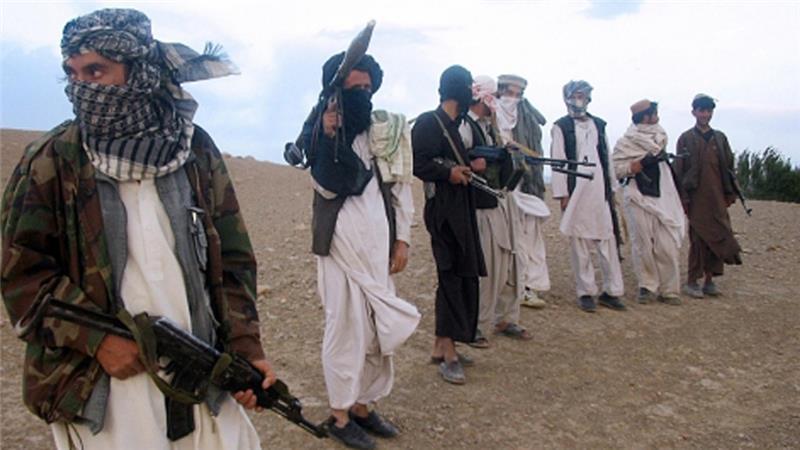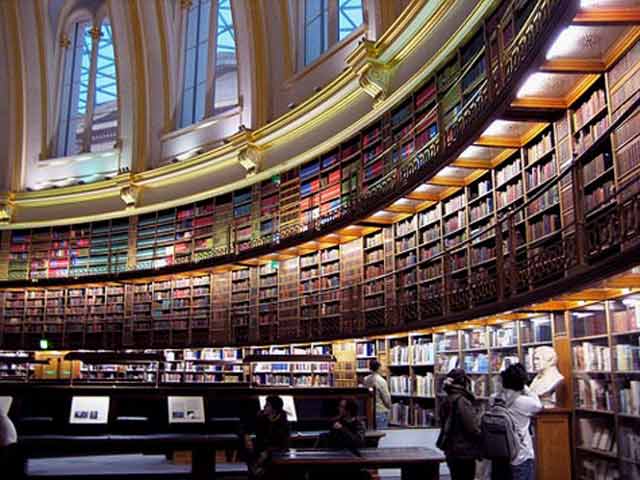Art World
British Library Rejects Taliban Archive Fearing Antiterrorism Laws
Is academic discourse being silenced?

Is academic discourse being silenced?

Sarah Cascone

Are the UK’s antiterrorism laws impinging on academic freedom? Such is the fear based on the British Library‘s decision not to accept the world’s largest collection of Taliban documents.
The Taliban Sources Project has spent almost a decade collecting and translating everything from newspaper articles, radio broadcasts, and military documents to scraps of poetry written by Taliban soldiers, in the hopes of facilitating a better understanding of the fundamentalist Islamic group. To date, the 10-person team has amassed over 2 million words.
In 2012, the project reached out to the British Library in the hopes of making the digitized archive available online for scholars. Years later, that deal has fallen through.
“Although the archive was recognized as being of research value, it was judged that it contained some material which could contravene the Terrorism Act, and which would present restrictions on the library’s ability to provide access to the archive for researchers,” said the library in a statement explaining their decision not to publish the archive.

The British Library.
The library based their decision on legal advice, noting that “the Terrorism Act places specific responsibilities on anyone in the UK who might provide access to terrorist publications.”
“There’s no recipes for making bombs or anything like that. These are documents that would help people understand history, whether it’s Afghans trying to learn about their recent past, or outsiders wanting to understand the movement,” Alex Strick van Linschoten, one of the project’s organizers, told AFP, calling the library’s decision “surprising and disappointing.”
The Terrorism Acts of 2000 and 2006 outlaw the collection of “material which could be used by a person committing or preparing for an act of terrorism.”
The law is meant to target those who share the beliefs of terrorist organizations, would use such information to support terrorism, and are circulating the materials to promote terrorism. Nevertheless, the library’s reticence in making the archive available demonstrates the restraints the laws have placed on academic research.

The British Library.
Photo: Jack1956, via Wikimedia Commons.
Most of the Taliban Sources Project’s documents date from between 1994 to 2001, before the US invasion of Afghanistan. The original materials are stored in Kabul, and the group is now approaching universities such as Yale and Stanford in the hopes of finding a digital host.
“Our knowledge of the Taliban in the 1990s is dominated by Western media coverage that was highly politicized, in part because information was not easily accessible,” the project’s Felix Kuehn told the New York Times. In comparison, the group’s research “gives a unique window into the Taliban’s world views, their negotiations with foreign governments, how they viewed history.”
Dublin City University professor James Fitzgerald, editor of the Critical Studies on Terrorism journal, was highly critical of the library’s decision. “It goes against the foundations of good research,” he told AFP. “The whole point of a library is to house this kind of information, to house history. You can’t have good or new research without primary data.”
Fitzgerald is among those who are concerned that the academic discourse is being silenced due to the fear that one might be accused of radicalism. In 2008, for instance, Rizwaan Sabir was arrested at the University of Nottingham in 2008 after he downloaded an Al Qaeda training manual while working on his thesis on terrorist strategies. Though Sabir received £20,000 (about $30,800) as compensation for false imprisonment, the climate of fear still persists.
“I find it deeply concerning that research cannot be fostered even in the best institutional framework you could have for providing the materials,” a frustrated Kuehn told the Guardian. “That climate is making it so difficult for researchers or students to engage with this material.”
Related Stories:
See the Buddhas of Bamiyan, Destroyed by the Taliban, Resurrected as Holograms
New York University’s Fales Library Acquires Triple Canopy’s Digital Archives